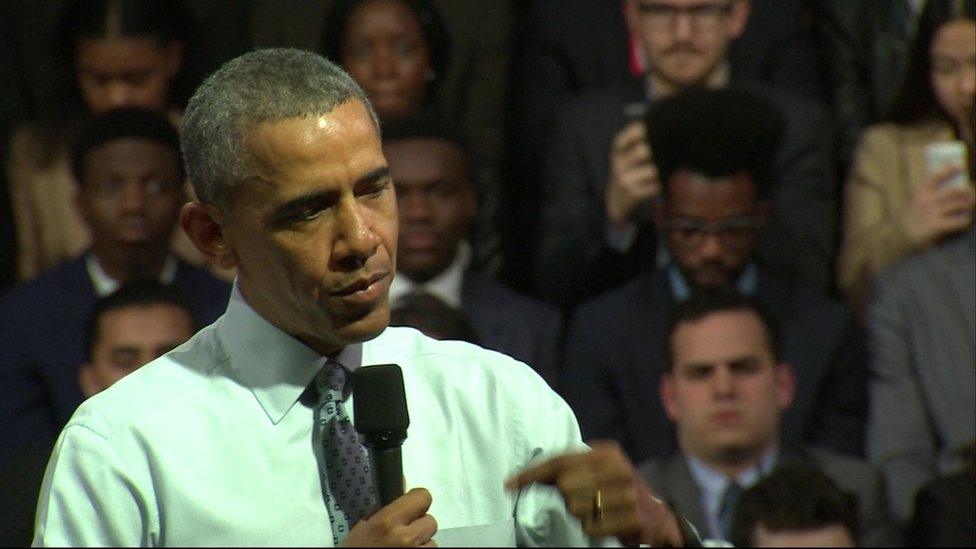Obama calls for greater European unity
- Published
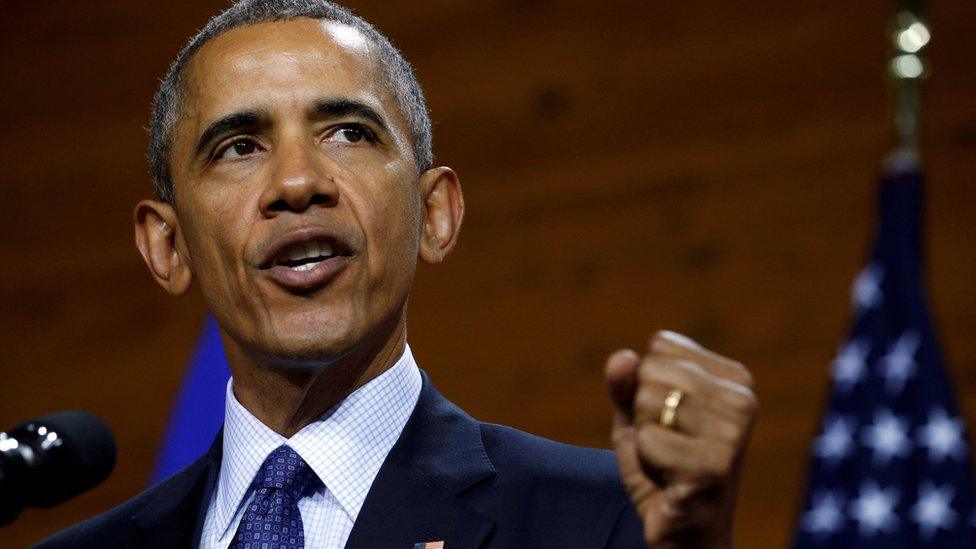
Barack Obama's visit to Germany is the last leg of a Middle East and European tour
US President Barack Obama has called for greater European unity, describing it as a "necessity" for the world.
Speaking in Germany, he accused Europe of complacency over its own defence and called on Nato allies to spend more on international security.
Mr Obama also appealed to the EU to rise above current divisions which, he said, were weakening the continent.
A migrant crisis and a UK referendum on EU membership in June have raised questions about Europe's unity.
Mr Obama called on EU states to share the burden of mass migration and see off those he accused of "exploiting people's fears".
Speaking in Hannover, Mr Obama said he was to send up to 250 more special forces troops to Syria to support local militias in the fight against so-called Islamic State (IS).
The new deployment will bring to 300 the number of US special forces soldiers in Syria.
He said that in the face of shared security threats, a "strong united" Europe remained a "necessity for all of us".
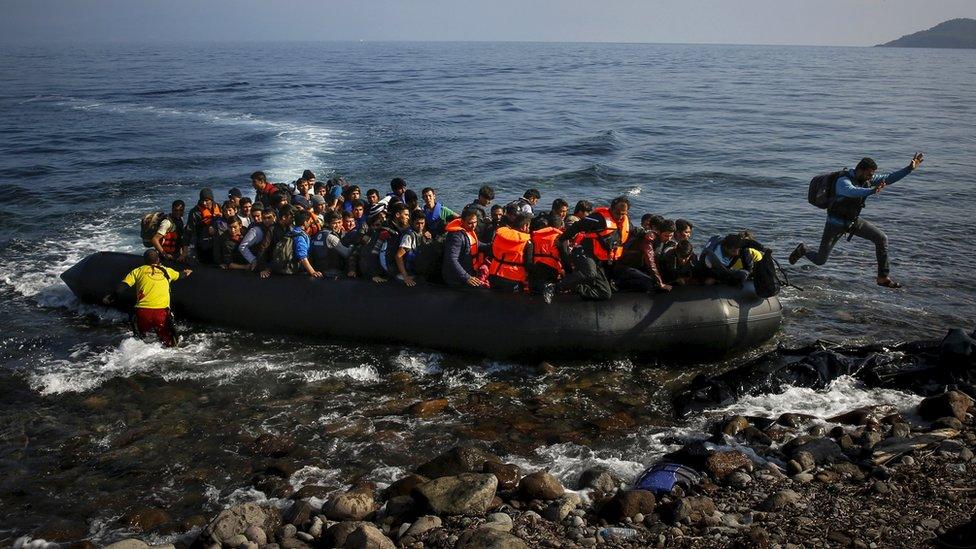
The migrant crisis has divided European states
Mr Obama announced he would send additional non-combat personnel to Syria in a visit to Hannover
"It's a necessity for the United States because Europe's security and prosperity is inherently indivisible from our own," he said.
"A strong united Europe is a necessity for the world because an integrated Europe remains vital to our international order."
He said that every Nato member should be contributing "its full share - 2% of GDP - towards our common security - something that doesn't always happen".
He added: "I'll be honest, sometimes Europe has been complacent about its own defence."
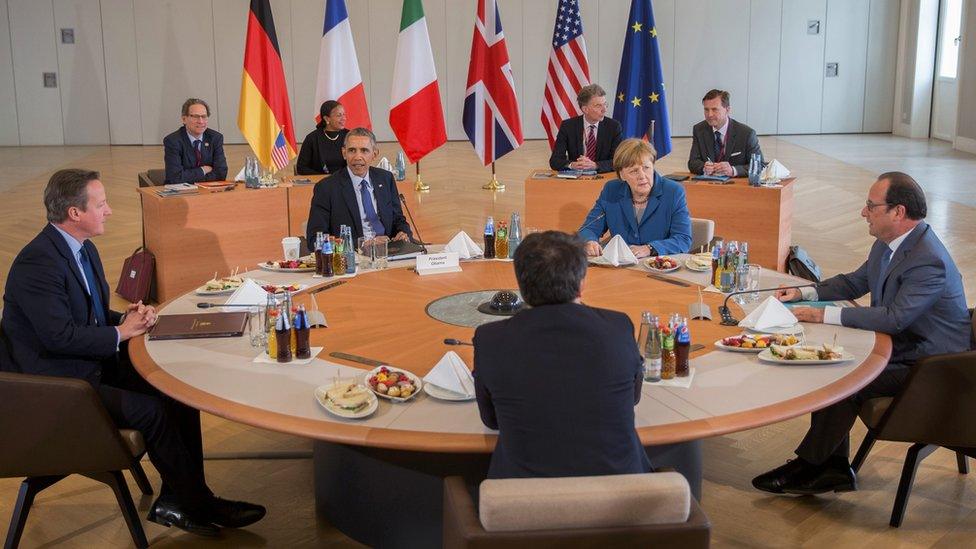
Mr Obama met with the leaders of Germany, the UK, France and Italy in Hannover on Monday
Mr Obama described the EU as one of the biggest achievements in modern history.
"More then 500 million people, speaking 24 languages in 28 countries, 19 with a common currency in one European Union, remains one of the greatest political and economic achievements of modern times," he said.
Mr Obama was speaking ahead of key talks in Hannover with the leaders of the UK, Germany, France and Italy. Syria and other foreign policy issues were believed to have topped the agenda.
At the weekend, Mr Obama told the BBC the UK would have less influence if it voted to leave the EU in the June referendum.
He also said the UK could take up to 10 years to negotiate trade deals with the US if it left the EU.
His warnings have angered UK campaigners who want to leave the EU.
- Published25 April 2016
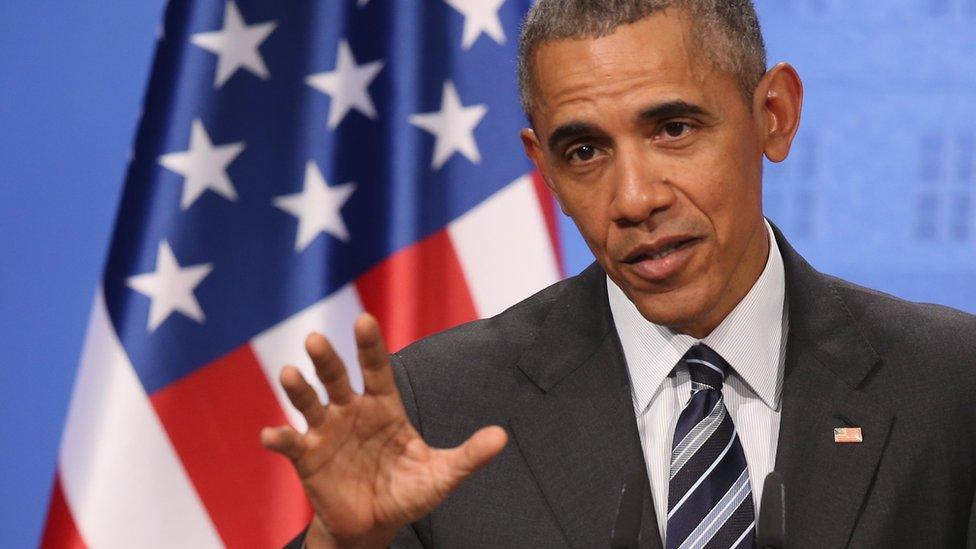
- Published23 April 2016
